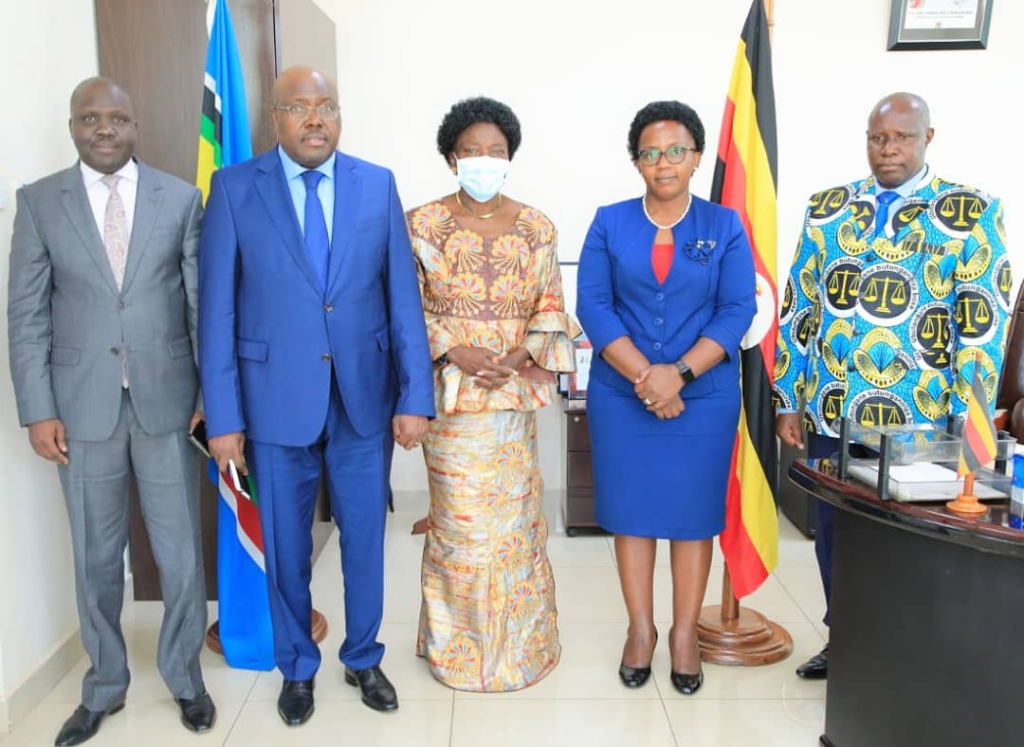The First Deputy Prime Minister and Minister for East African Community Affairs, Rebecca Kadaga, has urged legislators to embrace and participate in the second East African Kiswahili language day.

The First Deputy Prime Minister and Minister for East African Community Affairs, Rebecca Kadaga has urged legislators to embrace and participate in the second East African Kiswahili language day.
Uganda will host the event from 06 to 07 July 2023 under the theme, ‘Kiswahili and Multilingualism: Achieving more together’
“This year’s theme demonstrates that as Kiswahili grows and spreads across the world, it will continue encountering other languages which stand to achieve more together than they can gain alone,” Kadaga said.
She was presenting a brief to Parliament on Tuesday, 04 July 2023 on Uganda hosting the second world Kiswahili language in the East African Community.
“The event will promote the use of Kiswahili as an official language in Uganda including creating awareness about the East African Community,” said Kadaga.
She added that the event provides a platform for sharing experiences and insights on contemporary issues on Kiswahili.

“The event is intended to bring together East Africans to discuss ways and means of developing and promoting Kiswahili for regional integration and sustainable development,” Kadaga added.
The Deputy Speaker, Thomas Tayebwa said that Parliament is considering developing strategies on adopting Kiswahili lessons for Members of Parliament (MPs).
“A local language is very important. It is important for us to embrace Kiswahili so that we have one local language,” Tayebwa said.
Tororo North County MP, Hon. Geoffrey Ekanya proposed that Parliament should dedicate one day of the week for MPs to hold plenary in Kiswahili.
“This will make it mandatory for all and it will ensure that even our voters learn Kiswahili,” Ekanya said.
Hon. Patrick Oshabe (NUP, Kasanda County North) who is also one of the representatives at the Pan African Parliament (PAP) said that the regional Parliament is looking forward to a time when African countries adopt use of local languages.
“PAP is struggling because the continent is restricted to English and French. There is now a move at PAP to promote use of languages spoken across Africa,” Oshabe said.
Hon. Faith Nakut (NRM, Napak District) urged Parliament to support implementation of the plan to roll out use of Kiswahili in the country.
“That plan was presented a year ago here by the Prime Minister and I hoped that by now MPs would be debating in Kiswahili. Can we find out what is required to roll it out so that Parliament can support that plan,” she said.

The Chief Opposition Whip, Hon. John Baptist Nambeshe however, asked the Prime Minister to seize the opportunity to urge states to adhere to protocols and treaties, since Kiswahili is the best facilitator of trade.
“Now that Uganda has the privilege of hosting this international conference, there is a serious concern. We have protocols and treaties signed by member states but is there adherence if they are still rejecting goods and services from Uganda, especially Kenya?” he said.
Article 6(2) of the Constitution sates that Kiswahili is the second official language.
Article 137, Section 2 of the East African Community Treaty 1999 also states that Kiswahili shall be developed as a lingua franca of the community.





